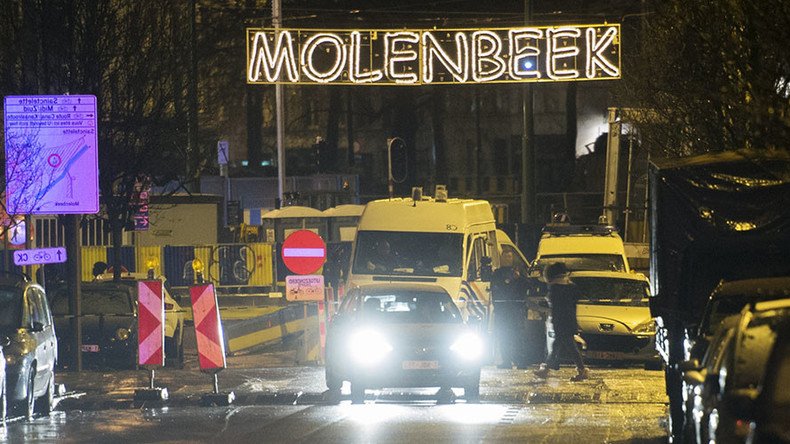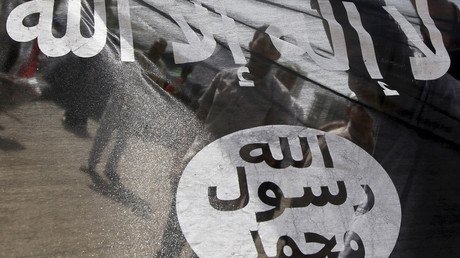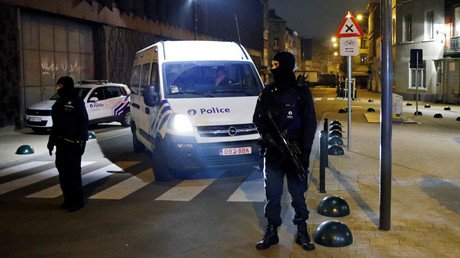Brussels district hosts 51 NGOs with suspected terrorist links – report

As many as 51 out of more than 1,600 non-profit organizations and activist groups registered in the mainly Muslim Molenbeek district of the Belgian capital have suspected links to terrorism, Belgium's De Morgen daily says, citing a confidential police report.
In most cases, the organizations were regarded by the police as having links to terrorism when they had a director, an employee or a volunteer suspected of some terrorism-related activities, De Morgen reports, citing a paper, which was drawn up a year since the Belgian Interior ministry has launched an anti-terrorist operation dubbed the Canal Plan.
The checks conducted in all 1,617 NGOs registered in Molenbeek also showed that 102 of them are allegedly involved in some criminal activities, while 93 ceased to exist due to inactivity and 344 will come to an end in the near future.
During the operation, police also compiled a list of terrorist suspects, including 72 people. The investigation showed that 26 of them left Belgium for Syria and Iraq to fight for the extremist groups while 46 suspects, including returnees, potential recruits and those who failed to travel to the Middle East, are now in Belgium.
The report also says that 20 terrorist suspects are now in prison while the rest, 26, are “closely monitored.” Meanwhile, the paper stresses that “de-radicalization” specialists were assigned to only five of the suspects returned from the Middle East.
At the same time, no one has left Belgium to join terrorist groups in Syria or Iraq over the past 12 months, it says, adding that one suspect attempted to do that but failed.
The Canal Plan was presented by the Belgian Interior Minister Jan Jambon in February 2016 and was aimed at enhancing control over the jihadist activities and fighting radicalism in eight specific municipalities: Saint-Gilles, Anderlecht, Molenbeek-Saint-Jean, Saint-Josse-ten-Noode, Koekelberg, Vilvoorde, Schaerbeek and the Brussels City.
The plan envisaged spending € 39 million ($ 41.9 million) and deploying 300 additional police officers to “clean up” the troubled communities with specific attention being paid to Molenbeek, which was considered a “terrorist hotbed” after high-profile terrorist attacks in Paris in November 2015 and in Brussels in March 2016.
“We are going to clean up Molenbeek,” Jambon promised after the Paris attacks. Over the year since the launch of the operation, Belgian police have conducted door-to-door checks and searches in more than 8,600 houses and carried out ID checks on 22,668 Molenbeek residents – a quarter of the district population.
“Such checks took place before,” the local police chief, Johan De Becker told Belgian La Derniere Heure daily, adding that, “since the Canal Plan [operation has been launched], we check every new registration and every apartment in the same building and then conduct another check in a few weeks.”
According to the report, police also conducted 104 additional checks and monitored the activities of 6,168 people, 227 of whom were subsequently detained.
Meanwhile, the actions of the police provoked an angry reaction from Molenbeek NGOs as a number of them filed a complaint about “police brutality,” claiming that there were instances of “intimidation” and “harassment” during the police checks.
Ahmed El Khannouss, a member of the Humanist Democratic Centre Party and a local councilor, told De Morgen that “the methods used by police were controversial.” He also added that he sent a letter to Jambon, outlining his concerns.
In response, Jambon’s spokesman said that the Interior Ministry “wants to deal with the hotbeds of extremism” but stressed that “all such [actions] must go hand in hand with efforts [aimed at] winning the hearts of the young people [in the area].”
Molenbeek fell into disrepute after it was revealed that many terrorists, who were involved into the Paris and Brussels terrorist attacks, grew up and lived there.
Abdelhamid Abaaoud, the mastermind behind the Paris attacks, the Abdeslam brothers, who were involved in the terrorist attacks in the French capital, and Mohamed Abrini, who was also involved in the Brussels attacks, all resided in Molenbeek.
In early February, the Coordination Unit for Threat Analysis (OCAM), a special body that assesses the level of terrorist threat in Belgium, warned in its report that an increasing number of mosques and Islamic centers in Belgium are controlled by the Wahhabis while radical TV stations and online media operate freely and Wahhabi literature can be found in most Islamic bookshops.
In November 2016, the Belgian Foreign Minister Didier Reynders also warned the EU of an increasing influx of returning fighters who could carry out terrorist attacks in Europe.















